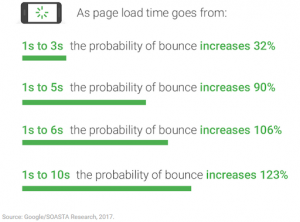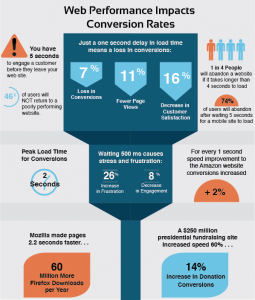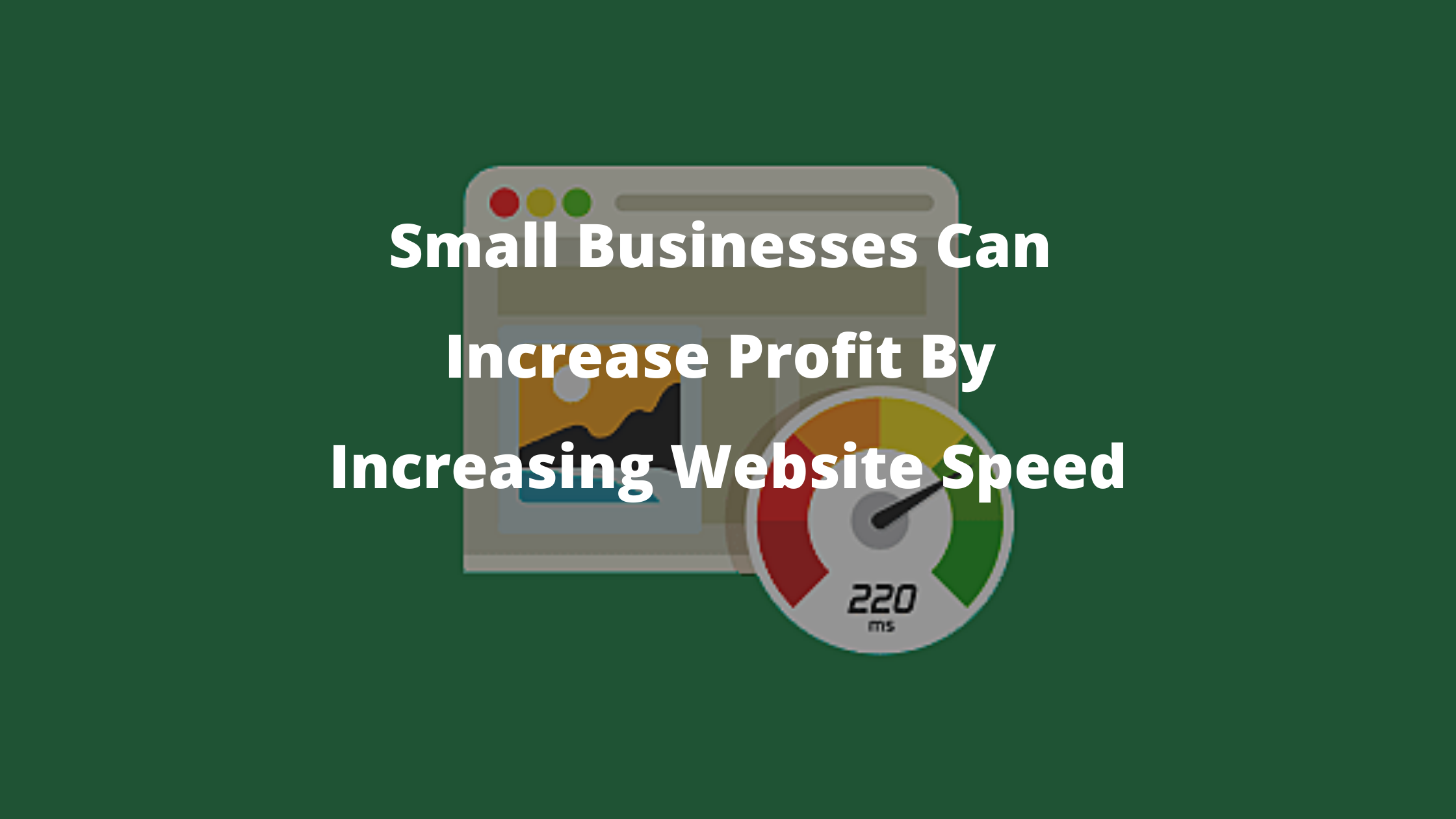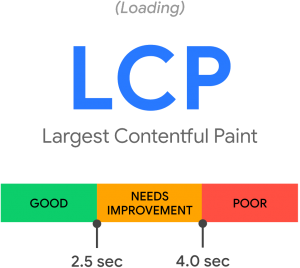Do you know you can boost your business’s profit by increasing website speed? This is an era of instant gratification and customers prefer businesses who value their time and maximize their website speed, all while providing quality service.
Having a fast-loading website page is imperative to customer satisfaction. Google is going to start applying page ranking signals based on Core Web Vitals on all browsers on mobile devices. Page loading speed is one of these critical vitals. The next Google update is around the corner and Google is going to reward business websites with a good user experience. In this update, pages that have a good score on Core Web Vitals will get a boost in their ranking for the user experience provided other signals of user experience are also performing satisfactorily.
Contents
Why does page speed matter so much for your business?
1. Website Speed is Critical for Providing Quality User Experience
According to research done on the user experience of websites:
- 39% of users will stop engaging with content when the images won’t load, or the loading time takes too long.
- 88% of users are less likely to return to a website after a bad user experience.
- If a website needs more than 3 seconds to load, 40% of the people leave the website.
These facts show the importance of having a good overall user experience on your website especially page speed should be optimal. A frustrated user is going to become your competitor’s customer. This is the opportunity cost your business will pay for a low-speed loading page.
2. Website Speed Boosts Page View

Google wants to serve its users with the best results when they search for something. If your website content is relevant and your page speed is optimal, your business will be more likely to get more attraction from users. In turn, your page views will go up. This is the first stage of a buying funnel where your customer interacts with your content and generates a positive impression of your business.
3. Website Speed Helps Lower Bounce Rate
Providing users what they are searching for and providing it fast is the key to keeping customers engaged. This, in turn, will decrease your bounce rate. A low bounce rate is desired metric for all businesses because it tells Google your website is worthy in the eyes of users.

4. Google Endorsement
Good user experience increased page views and low bounce rate are a few of the desired metrics that tell Google that your business has everything that meets your users’ expectations. Google rewards such businesses with high ranking. Having a higher ranking shows the credibility and authenticity of your business.
5. Increased Profit by Increasing Website Speed
At this point, your prospect customers are further down the sales funnels. They are more likely to convert into serious customers, which is the ultimate goal of any business. Thus, increasing website speed boosts profit.
6. Customer Loyalty
It all starts with having a fast-loading website along with a positive user experience. This lays the foundation of your relationship with your customers. If you continue to provide your customer what they need–and fast–then they are most likely to stay with you for a longer time. They may even become your brand ambassador which will reward your business with new customers.
So, What Are These Core Web Vitals?
Core Web Vitals are individual metrics and bundled together they give us an overall page experience. Google has emphasized the importance of these metrics for page ranking. Let’s discuss them:
Simply put this metric evaluate loading performance. LCP should be 2.5 seconds or lower when the page first starts loading.
These metrics track the time it takes before someone interacts with the page. According to Google: “To provide a good user experience, pages should have an FID of 100 milliseconds or less.”
It provides a measure of the visual stability of the page. To provide a good user experience, pages should maintain a CLS of 0.1 or less.
What do users expect on mobile vs. desktop?
The majority of internet searches are coming from customers’ mobile phones. 85% of mobile users expect pages to load as fast or faster than they do on a desktop. Mobile users are 5 times more likely to abandon a task if the website isn’t optimized for mobile.
How to Check Your Website Speed
You can use any of these services to check the speed of your website.
I prefer Genetrix but will often also scan with Pingdom tools after the first round of speed optimizations as a second opinion to avoid false positives.
You can also use Google’s tools, but I have found those to have more false positives than either Genetrix or Pingdom tools:
- https://developers.google.com/speed/pagespeed/insights/
- https://www.thinkwithgoogle.com/feature/testmysite
How do you optimize your website speed?
There are several factors that affect your website speed:
- Your hosting plan/setup.
- What CMS you are using (WordPress, Drupal, etc.).
- What themes and plugins you are using.
If you are using WordPress the best and easiest solution is the plugin WP Rocket.
We hope these tips and tricks were helpful. Read on here for some more tips on improving your website design.





